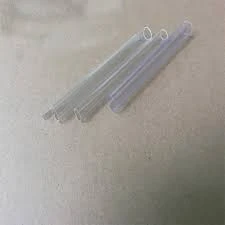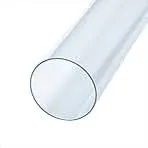Mar . 06, 2025 16:41 Back to list
PVC Laminated Sheet
When it comes to the realm of plastic welding, round polypropylene (PP) welding rods hold a significant position due to their unique properties and diverse applications across multiple industries. Designed specifically to weld PP materials, these rods are essential for creating durable, lasting bonds in plastics used in a wide range of sectors including automotive, chemical, food processing industries, and beyond.
In terms of authoritativeness, experts in the field advocate for using only high-quality round PP welding rods from reputable manufacturers to guarantee consistency and reliability. Subpar materials not only risk the integrity of the weld but can also lead to significant safety issues. Quality round PP rods provide uniform density and consistency, essential for ensuring that the weld holds under stress or exposure to harsh environmental conditions. In the broader scope of trustworthiness, certified manufacturers adhere to international quality and safety standards, such as ISO and ASTM. Consumers and businesses alike should prioritize these certifications as they indicate the materials have been tested and validated under stringent controls. Choosing certified products reduces the risk of premature product failure and promotes safety. Given their critical role in the industrial application, round PP welding rods are indispensable for ensuring infrastructure involving polypropylene is secure and efficient. For any industrial fabricator or technician, mastering the use of PP welding rods means not just learning the skills of effective welding but also understanding the science behind the tools and materials used. Staying abreast of new developments and innovations in welding technologies can further enhance both product durability and safety—crucial aspects for maintaining a competitive edge. For industries reliant on polypropylene, the proper implementation of round PP welding rods is not merely a technical necessity but a commitment to quality, efficiency, and safety. The expertise in applying this knowledge leads to significant advancements in product longevity and operational reliability, benefits that invariably translate into a stronger market presence and sustained business success. If integrating round PP welding rods isn't already a part of your operational toolkit, now is the time to embrace these tools for enhanced stability and success in your applications.


In terms of authoritativeness, experts in the field advocate for using only high-quality round PP welding rods from reputable manufacturers to guarantee consistency and reliability. Subpar materials not only risk the integrity of the weld but can also lead to significant safety issues. Quality round PP rods provide uniform density and consistency, essential for ensuring that the weld holds under stress or exposure to harsh environmental conditions. In the broader scope of trustworthiness, certified manufacturers adhere to international quality and safety standards, such as ISO and ASTM. Consumers and businesses alike should prioritize these certifications as they indicate the materials have been tested and validated under stringent controls. Choosing certified products reduces the risk of premature product failure and promotes safety. Given their critical role in the industrial application, round PP welding rods are indispensable for ensuring infrastructure involving polypropylene is secure and efficient. For any industrial fabricator or technician, mastering the use of PP welding rods means not just learning the skills of effective welding but also understanding the science behind the tools and materials used. Staying abreast of new developments and innovations in welding technologies can further enhance both product durability and safety—crucial aspects for maintaining a competitive edge. For industries reliant on polypropylene, the proper implementation of round PP welding rods is not merely a technical necessity but a commitment to quality, efficiency, and safety. The expertise in applying this knowledge leads to significant advancements in product longevity and operational reliability, benefits that invariably translate into a stronger market presence and sustained business success. If integrating round PP welding rods isn't already a part of your operational toolkit, now is the time to embrace these tools for enhanced stability and success in your applications.
Share:
Next:
Latest news
-
Premium PVC-M Water Supply Pipe - Durable & Efficient
NewsAug.02,2025
-
Premium PP Welding Rod: GPT-4 Turbo Enhanced
NewsAug.01,2025
-
HDPE Drainage & Irrigation Pipe - Durable, Efficient Solutions
NewsAug.01,2025
-
Premium PVC Transparent Pipe: Durable & Clear Solutions
NewsJul.31,2025
-
High-Quality UPVC Electrical Pipe for Safe Wiring Solutions
NewsJul.30,2025
-
Premium PVC Pipe Fitting Supplier – Durable & Leak-Proof Solutions
NewsJul.30,2025

